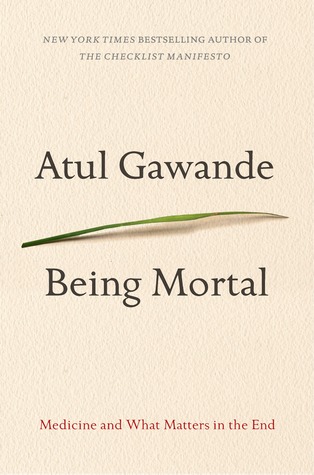We’ve Lost the Art of Dying. “The Fear of Missing Out”
A book review on Atul Gawande's book Being Mortal

In his much discussed Being Mortal, Atul Gawande claims modern medicine is ill-equipped to cope with the aged and people near death not because the medical community has a faulty view about what matters most in life, but rather because “they have had almost no view at all”. [1] Gawande is wrong. Medicine does have a view. It is about survivability.
Medicine espouses a view about life: More time on Earth is always better.
It’s no wonder people experience FOMO so acutely, especially during the COVID-19 pandemic. ‘Fear of Missing Out’ is social anxiety induced from the belief that others are having a better life than you. FOMO isn’t just about comparison with others. The anxiety can arise from thinking about the life you might have had, compared to your reality.
FOMO is fear of regret of missed opportunities, be it social events, novel experiences or acquisition of things. However, FOMO is really about an unwillingness to give up—an unwillingness to sacrifice.
Terry Eagleton notes sacrifice is what defines a martyr. [2] A martyr is willing to give up what is most precious to her—her life—in the hope that the cause will be realized. It is sacrifice that connects us to our humanness.
But Medicine tries to offer security in the face of change and decay. The goal is to patch up the patient and extend life. Medicine’s view about life promotes the belief that we should not have to give up anything. It contributes to an attitude of resistance to change, to death.
And so, we don’t grow. We do not know reality as it is. Resistance to change, loss and sacrifice warps our relation to the world: It is an attitude that assumes the self is at the center of it all. We falsely think that life and death are diametric opposites that can be separated, instead of being part of the same phenomenon. Life, however, is messy, just as we don’t control death.
We need to correct our relation to the world and things in it if we’re to better face something like COVID. Lalin Anik suggests adopting JOMO, ‘Joy of Missing Out’ to counter FOMO. [3] This approach is superficial. It merely shifts the objects of one’s desire. Its false life-affirming optimism doesn’t tackle the problem, because it still assumes the self is at the center of everything.
Thomas Merton says when we “forget ourselves on purpose,” we right our relation to the world. [4] His point is the existential purging of the self, the ego, allows us to really play in the world as we would like and avoid missing out. It’s a paradox: We miss out less if we give up more. We aren’t preoccupied by what the meaning of it all is, instead we simply are—we exist.
Suffering is constructive when it brings the insight we can accept change, which makes us suffer less. This isn’t to say that suffering experienced is any less profound or short-lived. The point is merely that resistance makes one suffer twice. Ceaseless hyperactivity to avoid suffering is suffering upon suffering. It is the wrong way to cope.
Gawande fails to acknowledge that modern medicine doesn’t equip us with the tools to face mortality, because its inherent life-extending stance is a denial of death, and as such a denial of life. It promotes FOMO and clinging on to life, making it sterile. We haven’t always been so. Past cultures practised ars moriendi, the art of dying. They cultivated an awareness of death and how to achieve a good death. The art of dying is the art of living. Recognition of death and the pursuit of a good death restores vitality, because it jolts us out of mundane stupor. They understood the messiness of life. Honest, hard conversations about death and life must happen while we are living. This isn’t about a frenzied search for deeper meaning where there is none. Rather, it involves patience and compassion with ourselves and others.
Mistakenly some think to reconcile oneself to death is to give up on life. It’s seen as resignation in the final battle. However, awareness of death delivers truth about human existence. It is to see life as a gift. It’s something we have not asked for, but has been bestowed to us all the same. This revelation helps us face reality as it is, not how we wish it to be. Enabling human well-being is about clarity and knowing one’s place in the world.
The Bardo Thödol, The Tibetan Book of the Dead, tells us there’s no mission more urgent than preparing for death, because it is life affirming. Zen Master Bunan Zenji says it best:
While alive, be dead,
Thoroughly dead—
All is good then,
Whatever you may do.
*
Note to readers: please click the share buttons above or below. Forward this article to your email lists. Crosspost on your blog site, internet forums. etc.
Notes
[1] Gawande, Atul. 2014. Being Mortal: Medicine and What Matters in the End. New York, New York: Metropolitan Books. 128
[2] Eagleton, Terry. 2018. Radical Sacrifice. New Haven, Connecticut: Yale University Press. 88.
[3] Trepany, Charles. 2020. “Quarantine FOMO: Why You May Still Fear Missing Out, Even When Everything Is Canceled.” USA Today, August 11.
[4] McDonnell, Thomas P. 1996. A Thomas Merton Reader. New York, New York: Doubleday Dell Publishing Group, Inc. 505.

